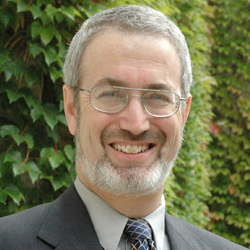Faculty DirectoryWilliam Kath

Professor of Engineering Sciences and Applied Mathematics and (by courtesy) Neurobiology
Margaret B. Fuller Boos Professor
Contact
2145 Sheridan RoadTech M460
Evanston, IL 60208-3109
847-491-8784Email William Kath
Website
Departments
Engineering Sciences and Applied Mathematics
Education
Ph.D. Applied Mathematics, California Institute of Technology, Pasadena, CA
S.B. Mathematics, MIT, Cambridge, MA
Research Interests
Quantitative biological modeling, circadian rhythms, computational neuroscience, action potential propagation and dendritic integration in neurons; optical fibers and waveguides, polarization mode dispersion; importance sampling and rare event simulation; stochastic and nonlinear dynamics
Significant Recognition
- Fellow, Society for Industrial and Applied Mathematics
- Fellow, Optical Society of America
- ASEE Mathematics Division Distinguished Educator and Service Award
- McCormick School Teaching Award
Significant Professional Service
- Deputy Director of the NITMB
Selected Publications
- Temperature-driven coordination of circadian transcriptome regulation, Xu B, Hwangbo D-S, Saurabh S, Rosensweig C, Allada R, Kath WL, Braun R, PLoS Comput Biol. 2024 Apr 22;20(4):e1012029
- Rapid threat assessment in the Drosophila thermosensory system. Jouandet GC, Alpert MH, Simões JM, Suhendra R, Frank DD, Levy JI, Para A, Kath WL, Gallio M. Nat Commun. 2023 Nov 3;14(1):7067. doi: 10.1038/s41467-023-42864-5.
- EMBEDR: Distinguishing signal from noise in single-cell omics data, E. M. Johnson, W. L. Kath and M. Mani, Cell Patterns 12 (2022) p. 100443.
- Robustness and plasticity in Drosophila heat avoidance, J. M. Simões, J. I. Levy, E. E. Zaharieva, L. T. Vinson, P. Zhao, M. H. Alpert, W. L. Kath, A. Para & M. Gallio, Nature Communications 12:2044 (2021).
- Universal method for robust detection of circadian state from gene expression. Braun R, Kath WL, Iwanaszko M, Kula-Eversole E, Abbott SM, Reid KJ, Zee PC, Allada R. Proc Natl Acad Sci U S A. 2018 Sep 25;115(39):E9247-E9256. doi: 10.1073/pnas.1800314115.
- Synaptic amplification by dendritic spines enhances input cooperativity,, M. T. Harnett, J. K. Makara, N. Spruston, W. L. Kath & J. C. Magee, Nature, 491 (2012), pp. 599-602.